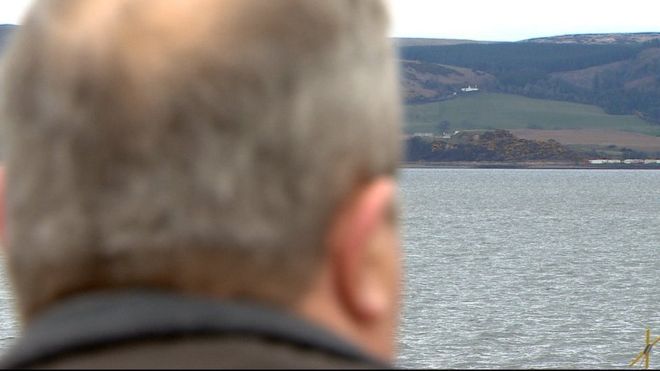Child Abuse Inquiry Outlines How It Will Take Evidence
By Reevel Alderson
The inquiry into historical allegations of child abuse in Scotland has outlined how it will take evidence. Chaired by QC Susan O'Brien, it will take four years to investigate the extent of abuse of children in care, and identify any systemic failures. But many survivors have continued to be critical of its terms of reference, which they have said prevents thousand of victims from giving evidence. The Scottish government said the inquiry was the widest it had set up. The inquiry launched its formal call for evidence on Wednesday but it has already heard from a small number of seriously ill or very elderly survivors. At the launch in Glasgow, it invited other victims to come forward. 'Massive problem' Ms O'Brien, supported by panel members Glenn Houston and Prof Michael Lamb, said those who wish to provide evidence should make contact by email, post or through a dedicated freephone number - 0800 0929 300 - from 29 March. Survivors will tell their stories in informal, private settings to members of the inquiry panel who will then create a statement for them to sign. As the inquiry proceeds, some survivors may later be asked to give evidence in public hearings. It expects public hearings to begin in November and aims to provide an interim report on the first public hearings next year. Ms O'Brien said: "The important thing is to get the message out. The problem is we don't know who is out there. It is a massive problem letting them know that the inquiry exists. "We don't know how many people will come forward. It could be 500 or 5,000 we will have to take evidence from." The inquiry's remit is to investigate the nature and extent of abuse of children in care. But that does not include abuse outside residential institutions, including in parishes and youth organisations. Janine Rennie, chief executive of the Falkirk-based charity Open Secret, said she was concerned that only 20% of its clients would be covered by the inquiry. She said the government should have listened to survivors and organisations representing them when they said they wanted the remit of the inquiry widened. "It feels sometimes to me as if there are certain things being done, but it's not going far enough. And that that is really across the board," she said. "And I think survivors are not being listened to. It happened to them time and time again in childhood. Choices were made for them. "They were put into a care setting. Those choices were made. They weren't allowed to have their voices heard, and it's happening again." Flashbacks and depression But one survivor who spoke to BBC Scotland and asked to remain anonymous, said he was pleased he would be able to tell his story. He and his brother were in care between 1965-71 in the west of Scotland, and were regularly beaten for talking in bed, then locked for an hour in a darkened cupboard. He said he regularly suffered flashbacks and depression from his treatment. "We trusted these adults; they had a duty of care to look after us. And all we wanted was to be loved and feel secure, and they took that away from us - and our trust," he said. "Hopefully, if the public inquiry goes well, maybe people will start to move on now and try to put the past behind them, and get back to a normal family life. "I've got grandchildren now, and I don't want to miss them growing up." A Scottish government spokesman said: "We know there is a willingness among many survivors to continue positive engagement with the Inquiry. "We will continue working closely with all survivor representative groups to deliver our commitments, including improved support and commemoration, while allowing the inquiry team to get on with its essential work." The inquiry has been tasked with investigating the nature and extent of abuse of children while in care in Scotland, and to consider the extent to which institutions and bodies with legal responsibility for the care of children failed in their duty of care. When she established the inquiry last year, Ms Constance said it would "aim to shine a light in the dark corners of the past, to shape how we respond in the present and guide how we go forward in the future." She also said that "we need to learn all we can to ensure no institution becomes a hiding place for those who abuse positions of trust to prey on children." The inquiry's remit currently allows it to investigate cases of children being abused while in institutional care "within living memory" up to December 2014. It classes "in care" as being: Children's homes (including residential care provided by faith based groups); Secure care units including List D schools; Borstals and Young Offenders' Institutions; Places provided for Boarded Out children in the Highlands and Islands; State, private and independent Boarding Schools, including state funded school hostels; Healthcare establishments providing long term care, and any similar establishments intended to provide children with long term residential care. Children in foster care. But it does not cover children who were abused while living with their natural or adoptive families, while using sports and leisure clubs or attending faith based organisations on a day to day basis. The inquiry will also not examine allegations of children being abused in non-boarding schools, nursery or day-care centres. The definition of "abuse" for the purpose of the inquiry is taken to mean primarily physical abuse and sexual abuse, with associated psychological and emotional abuse. The inquiry has been instructed to publish its report and make its recommendations by October 2019 - four years after it was established.
|
.
Any original material on these pages is copyright © BishopAccountability.org 2004. Reproduce freely with attribution.
